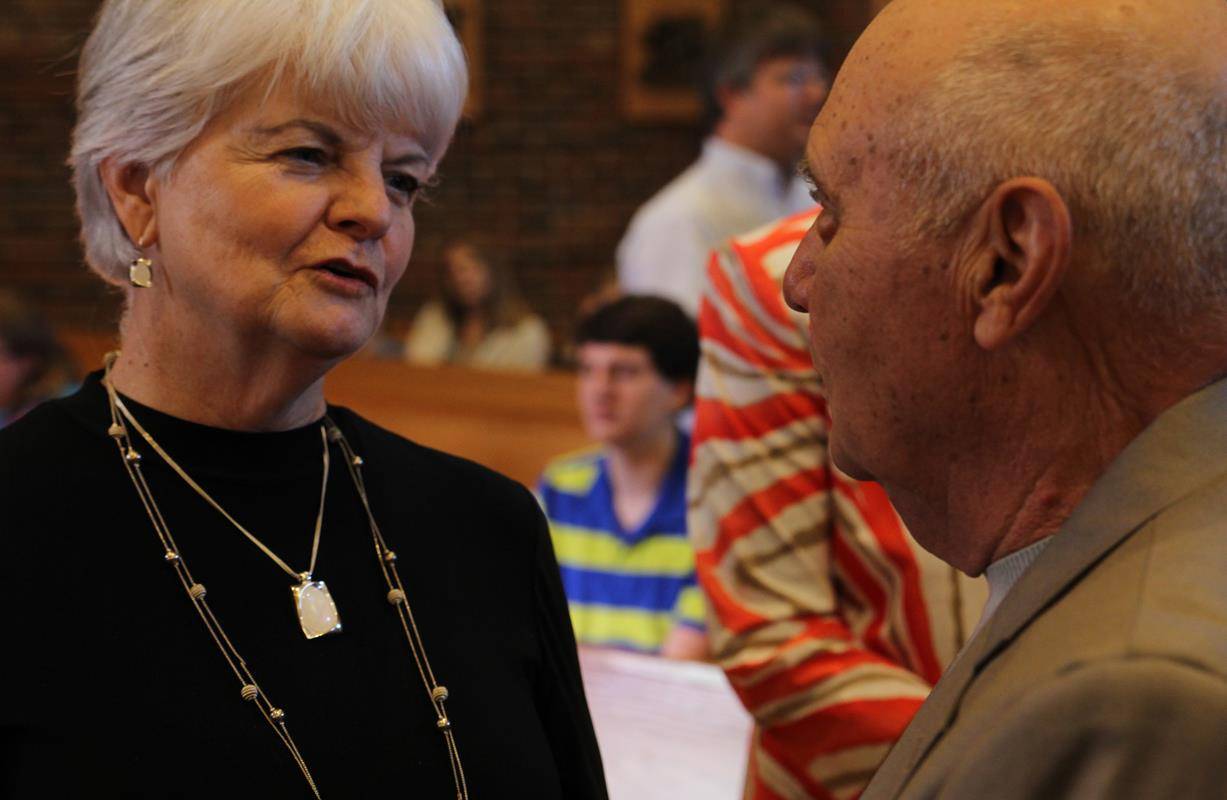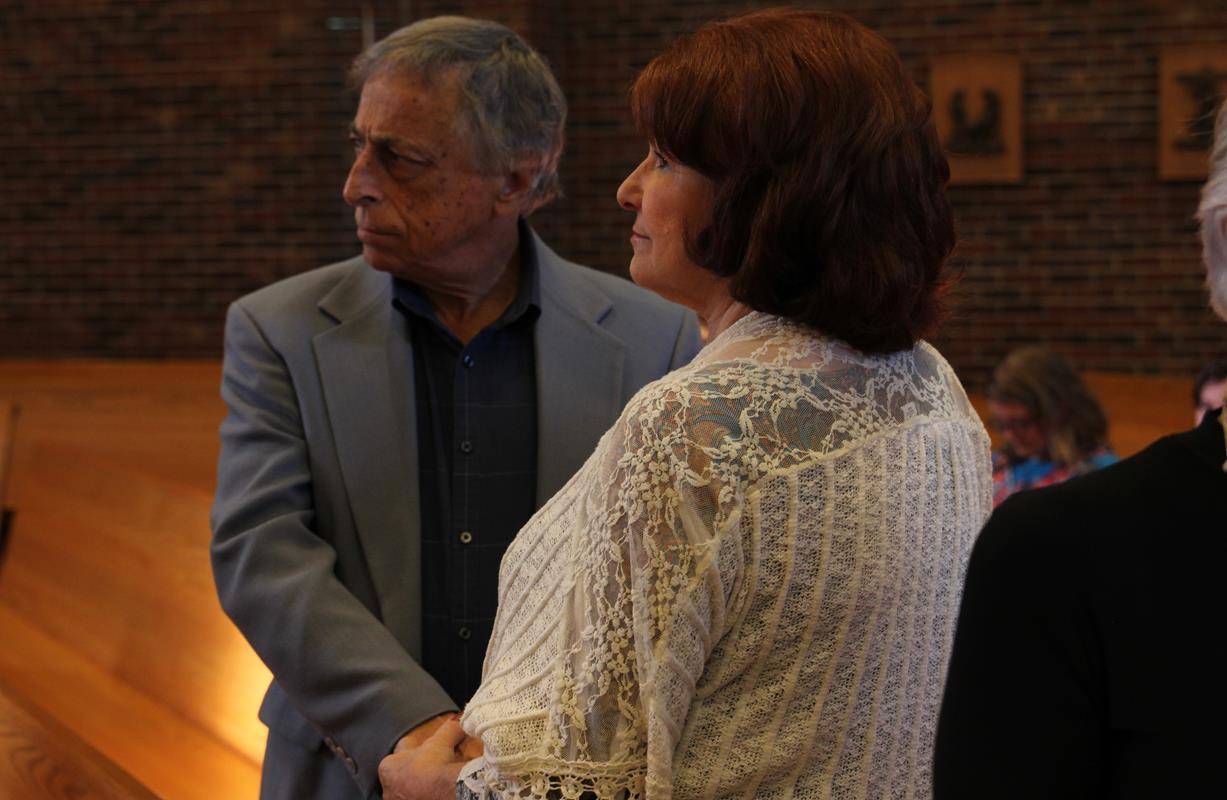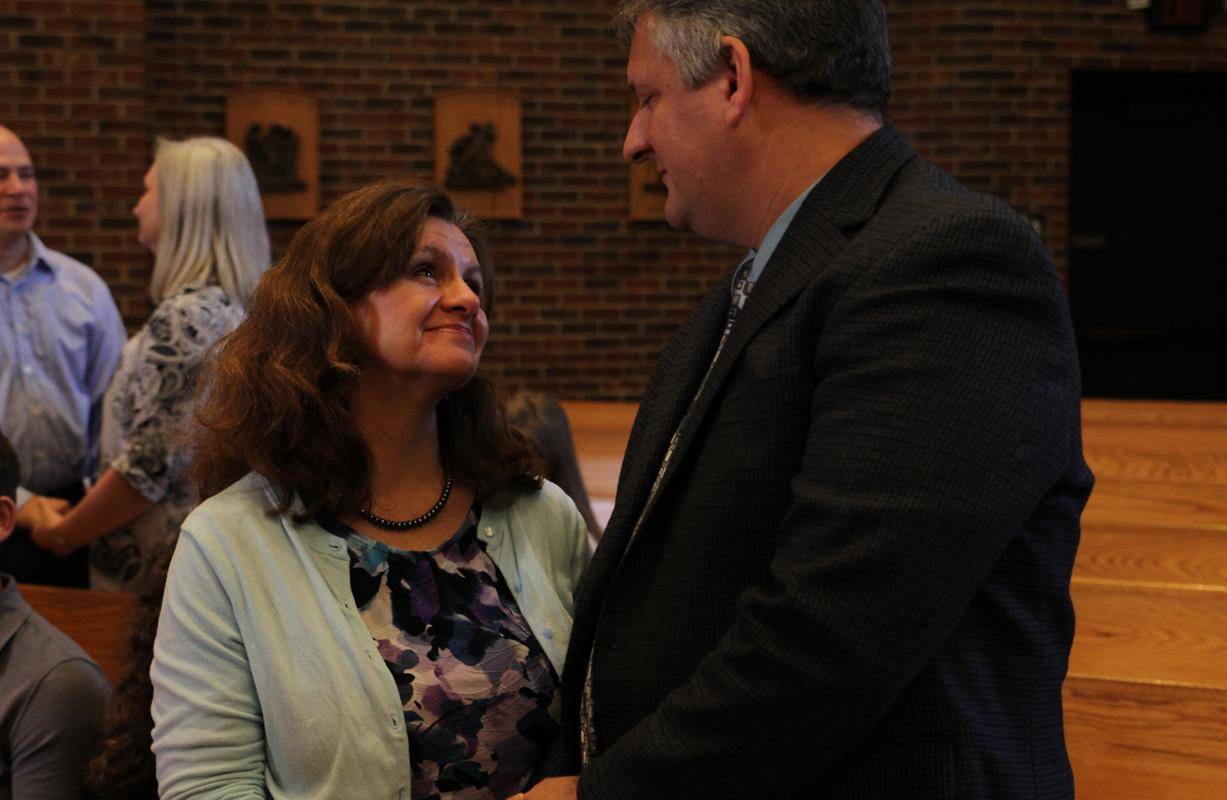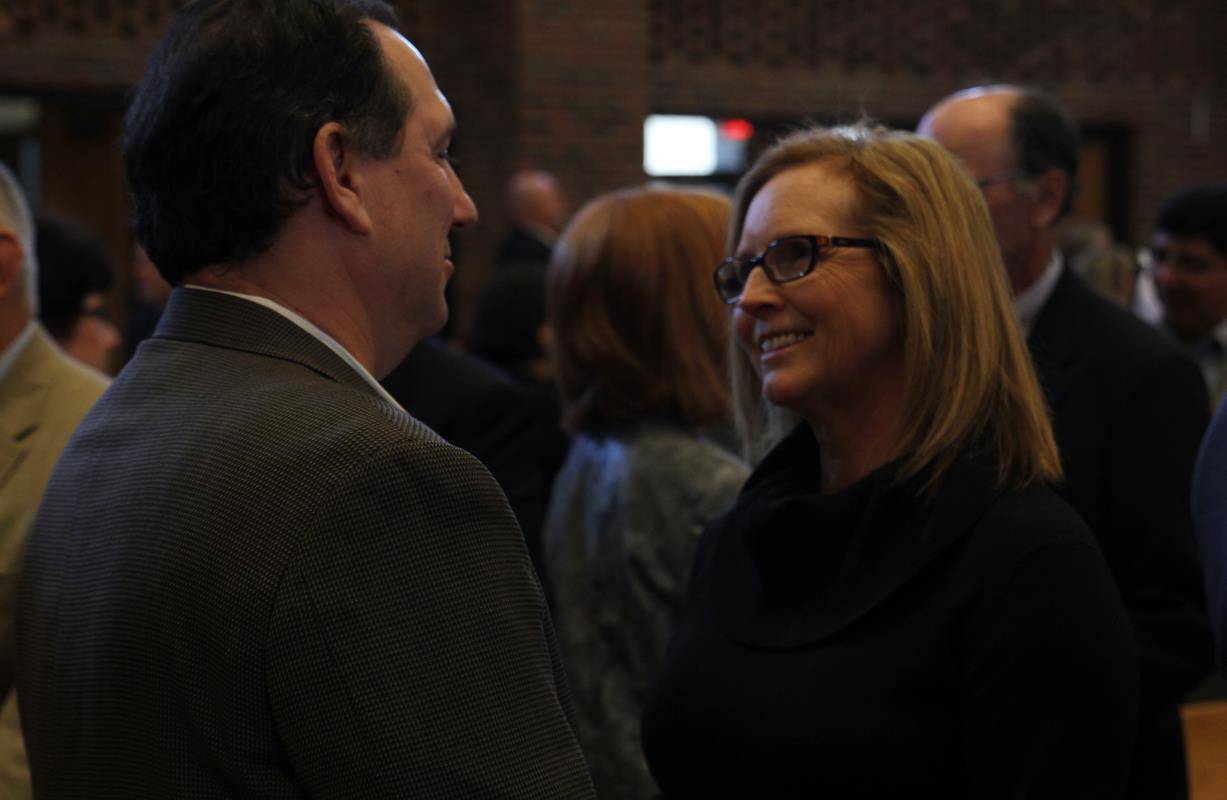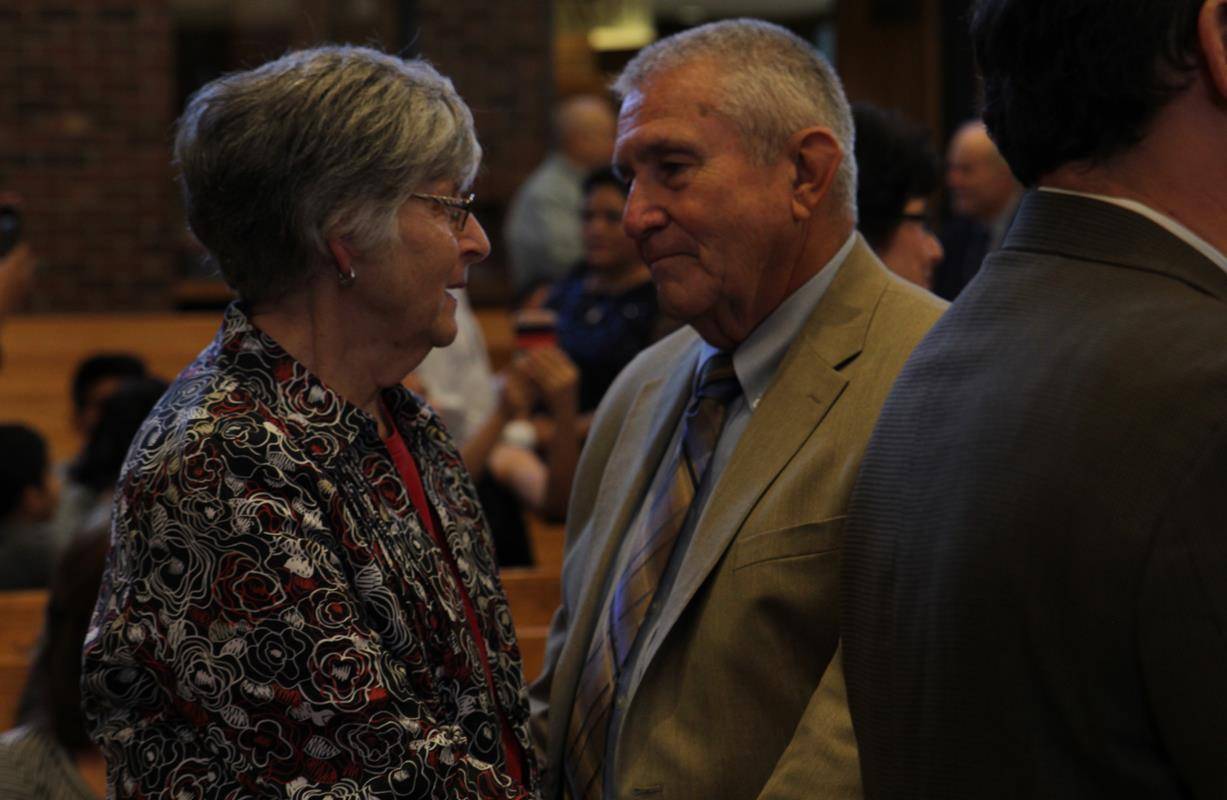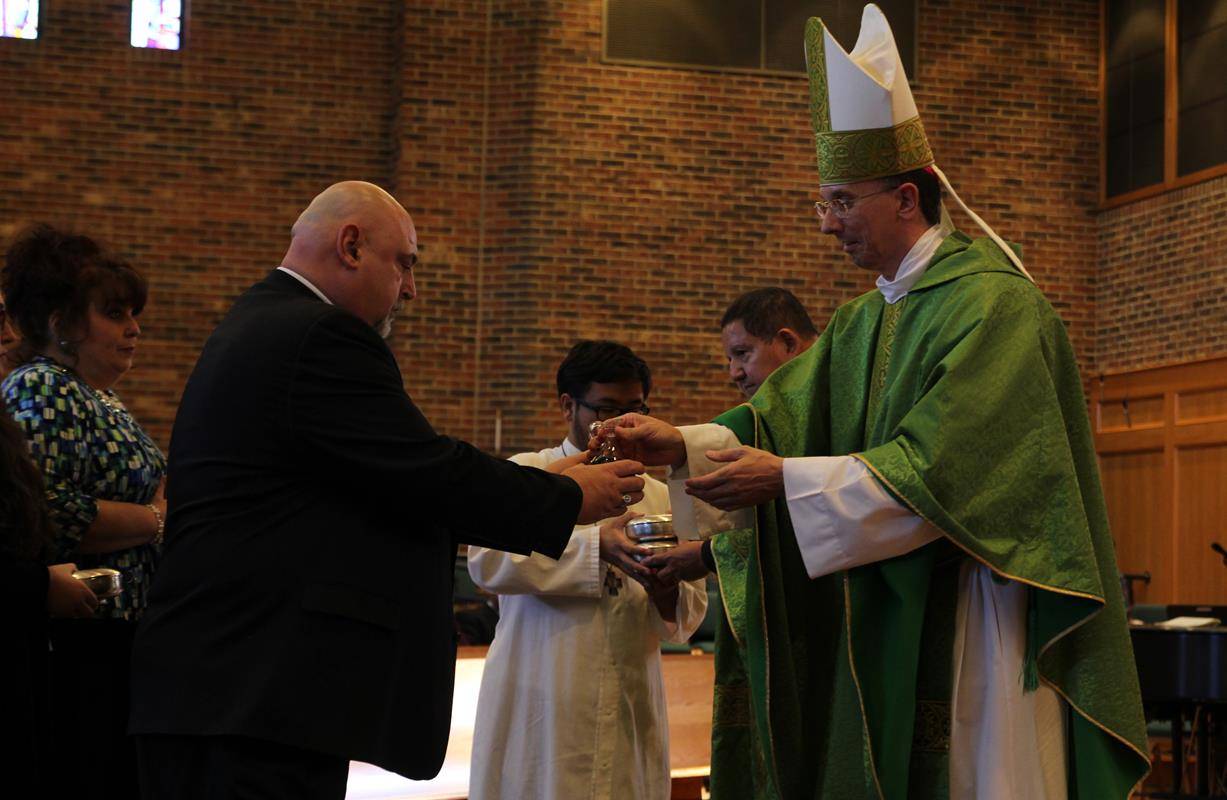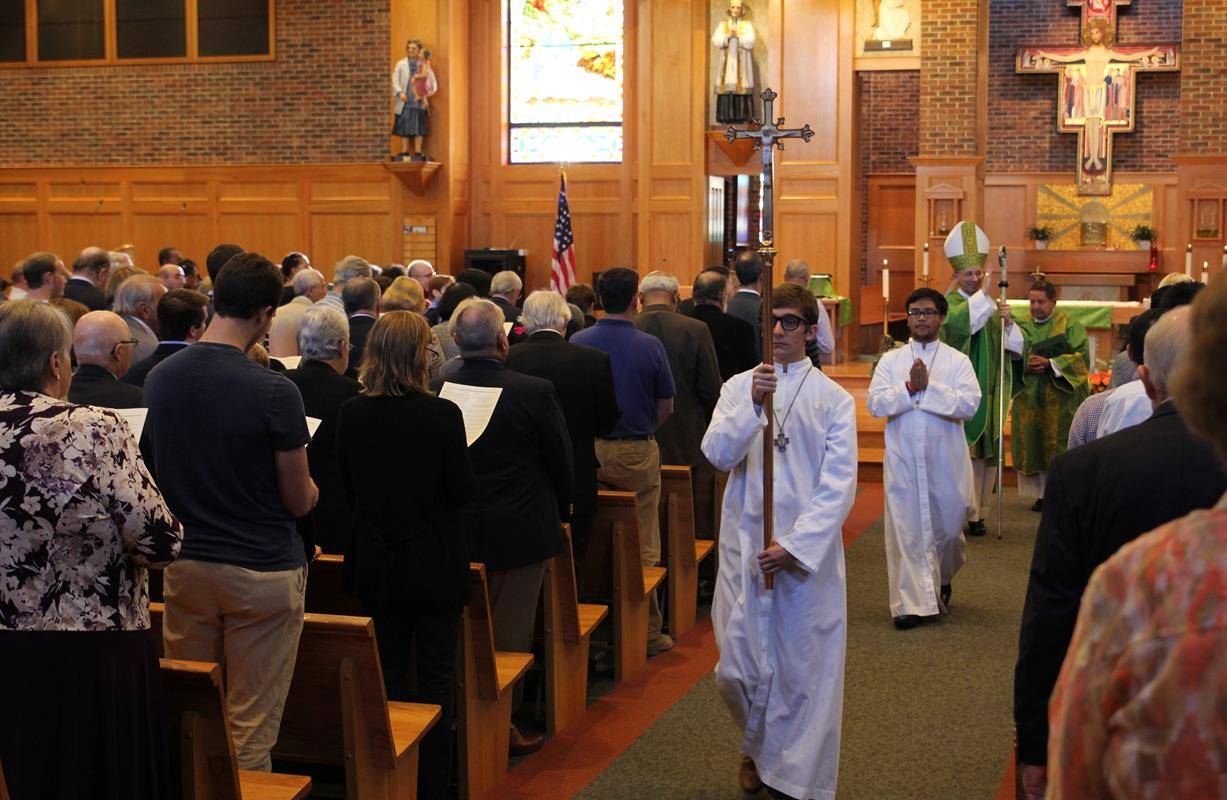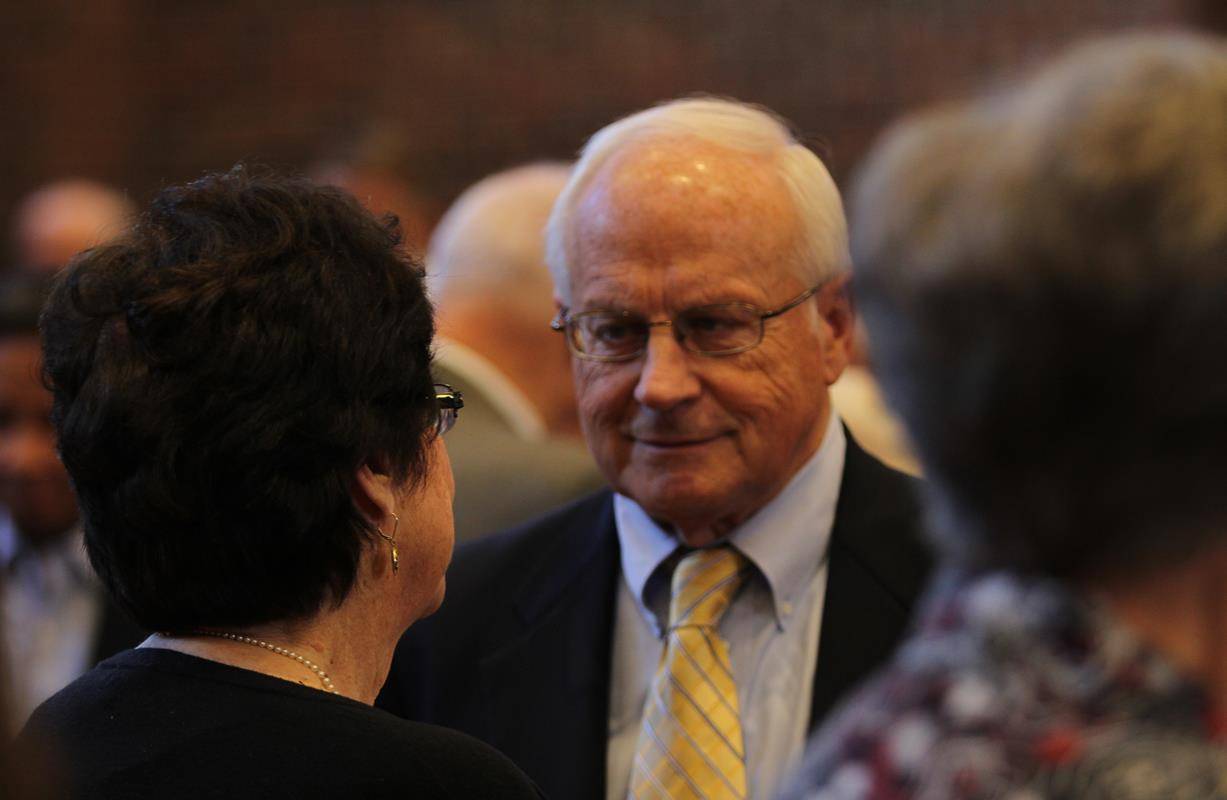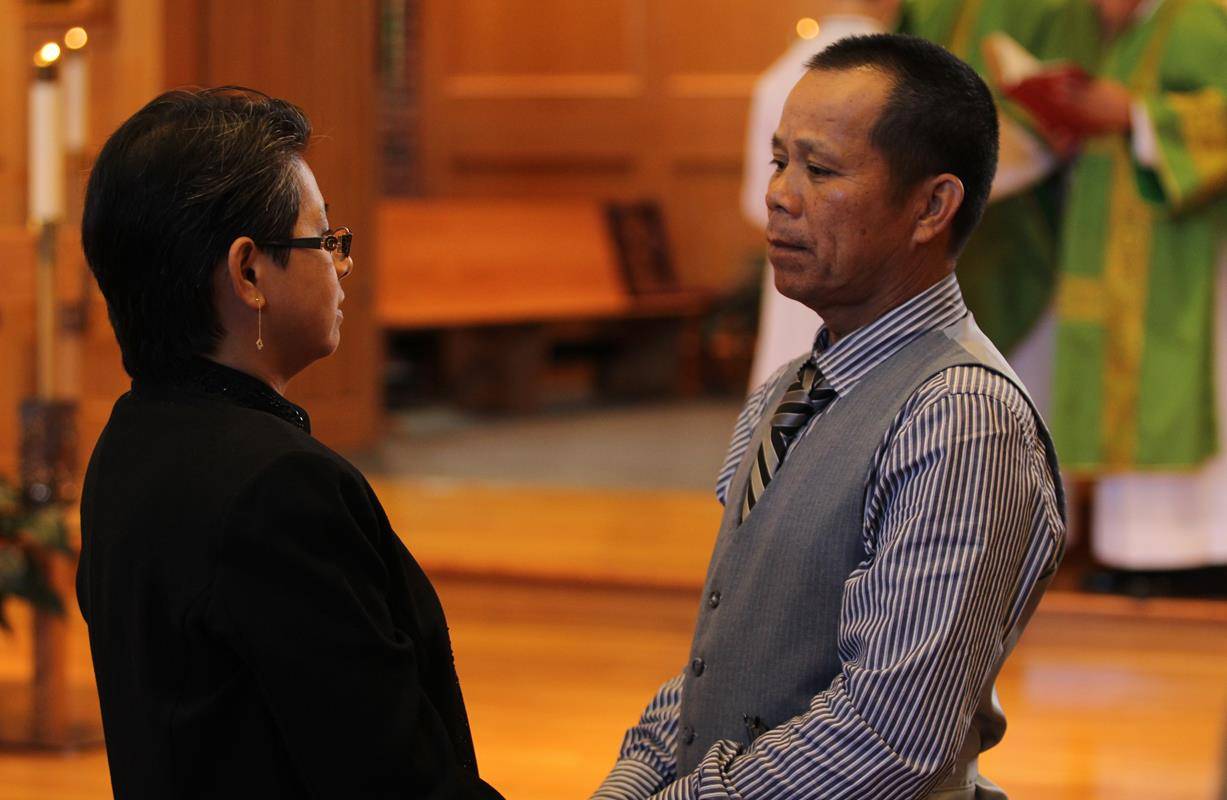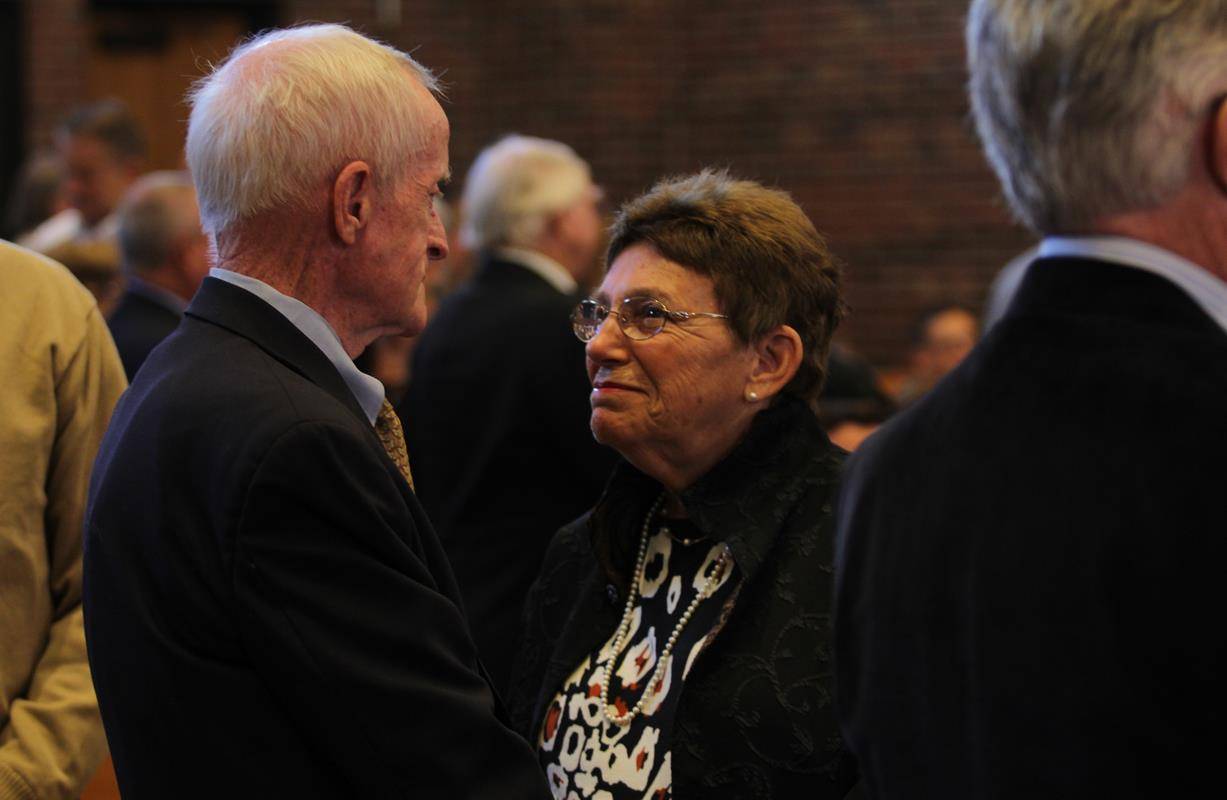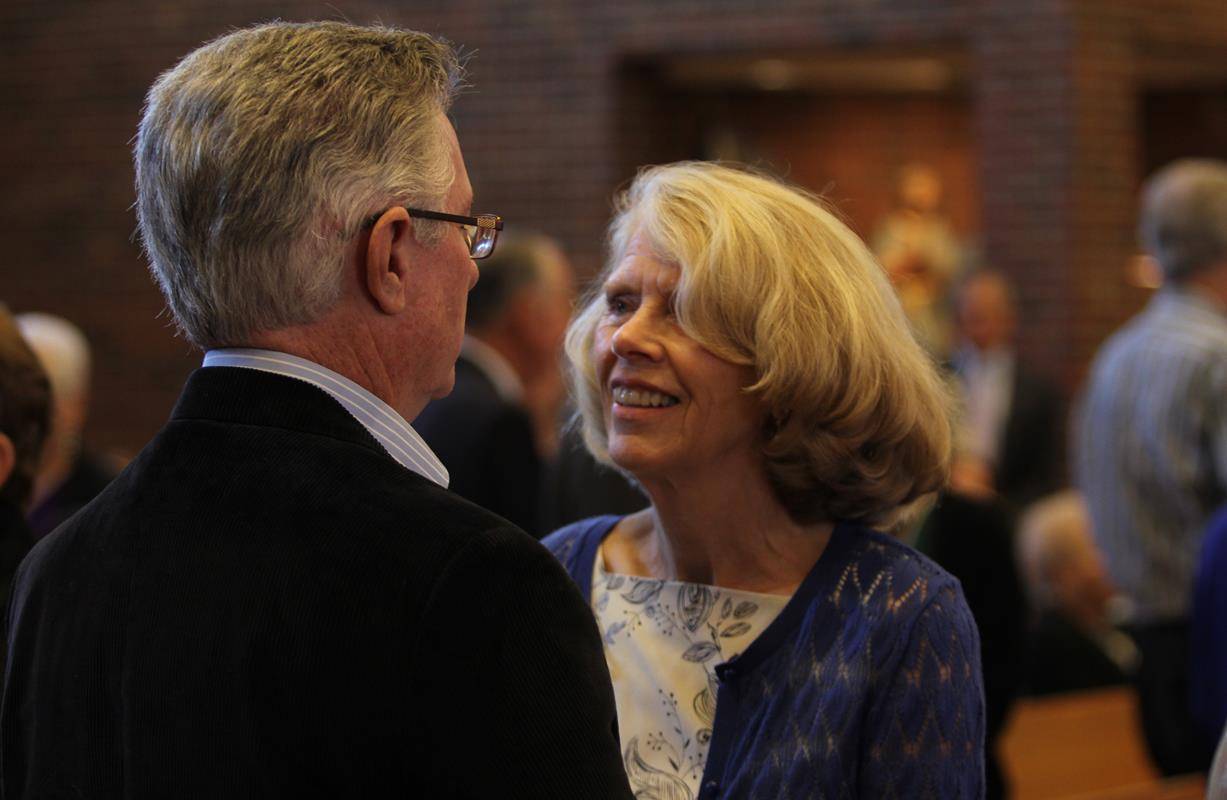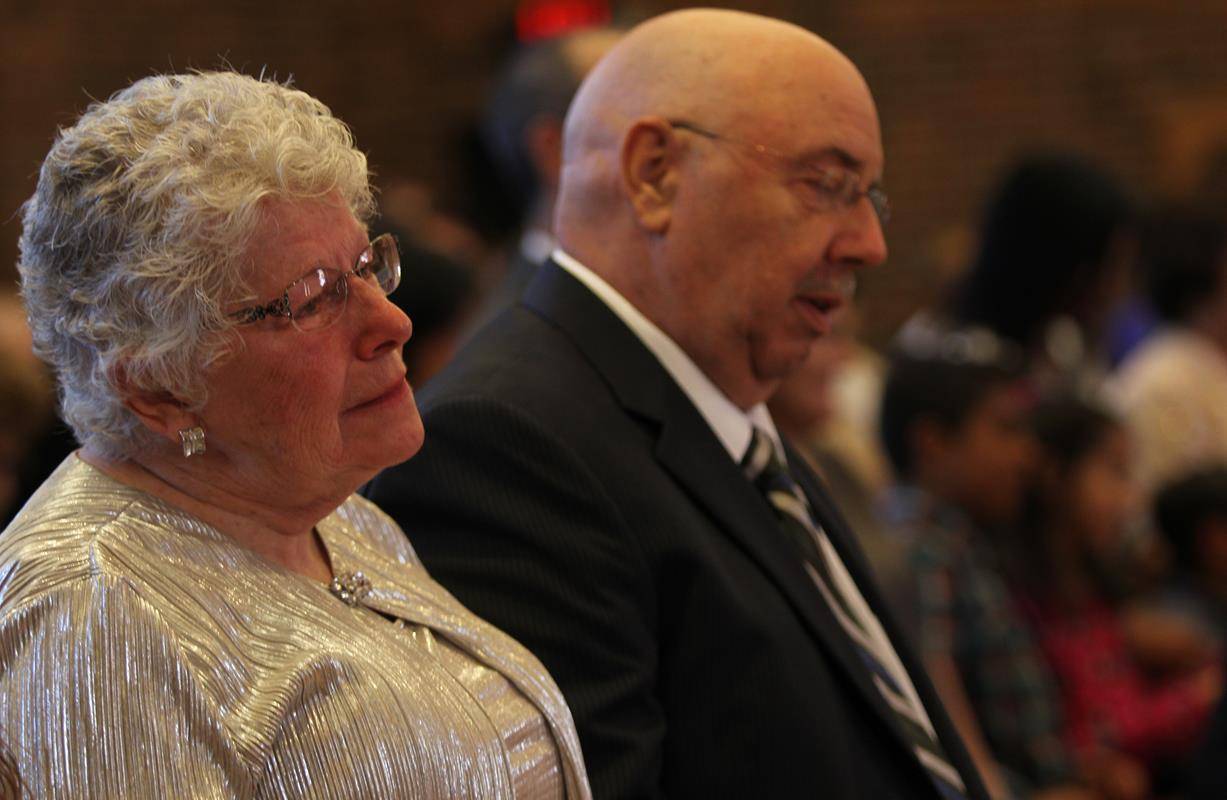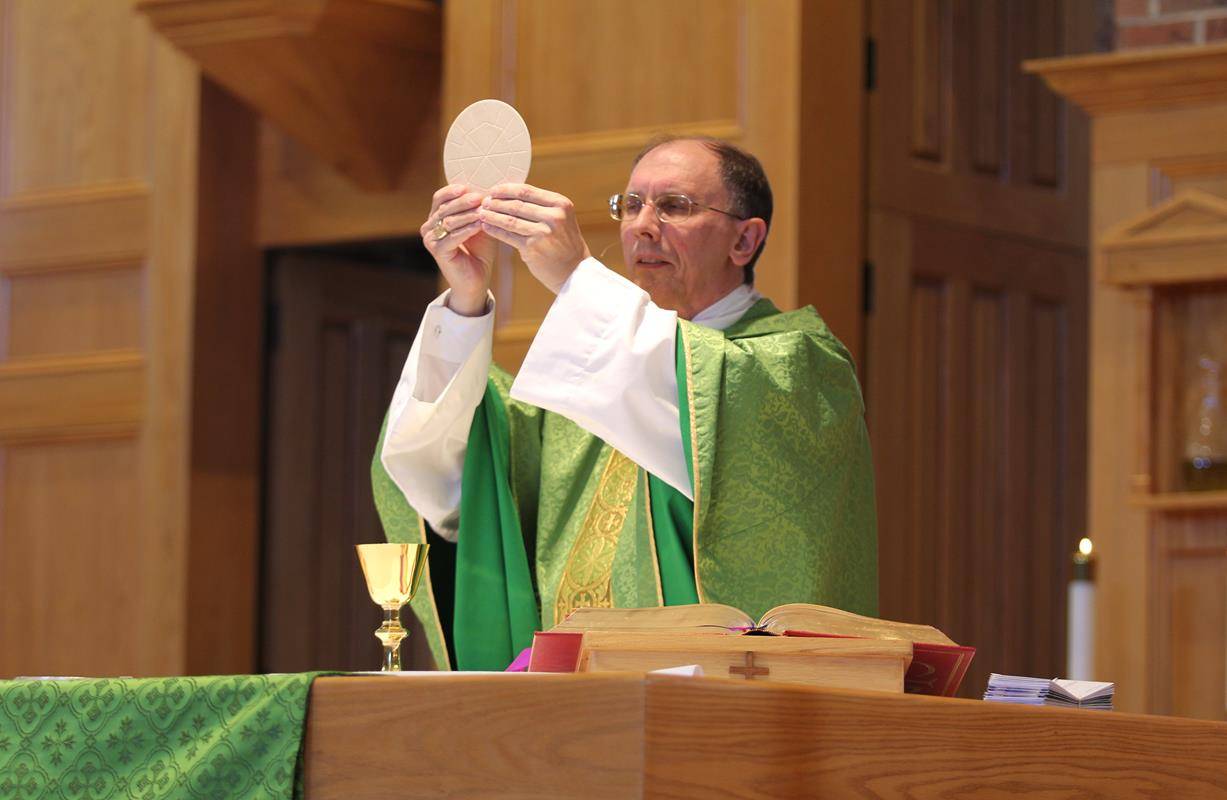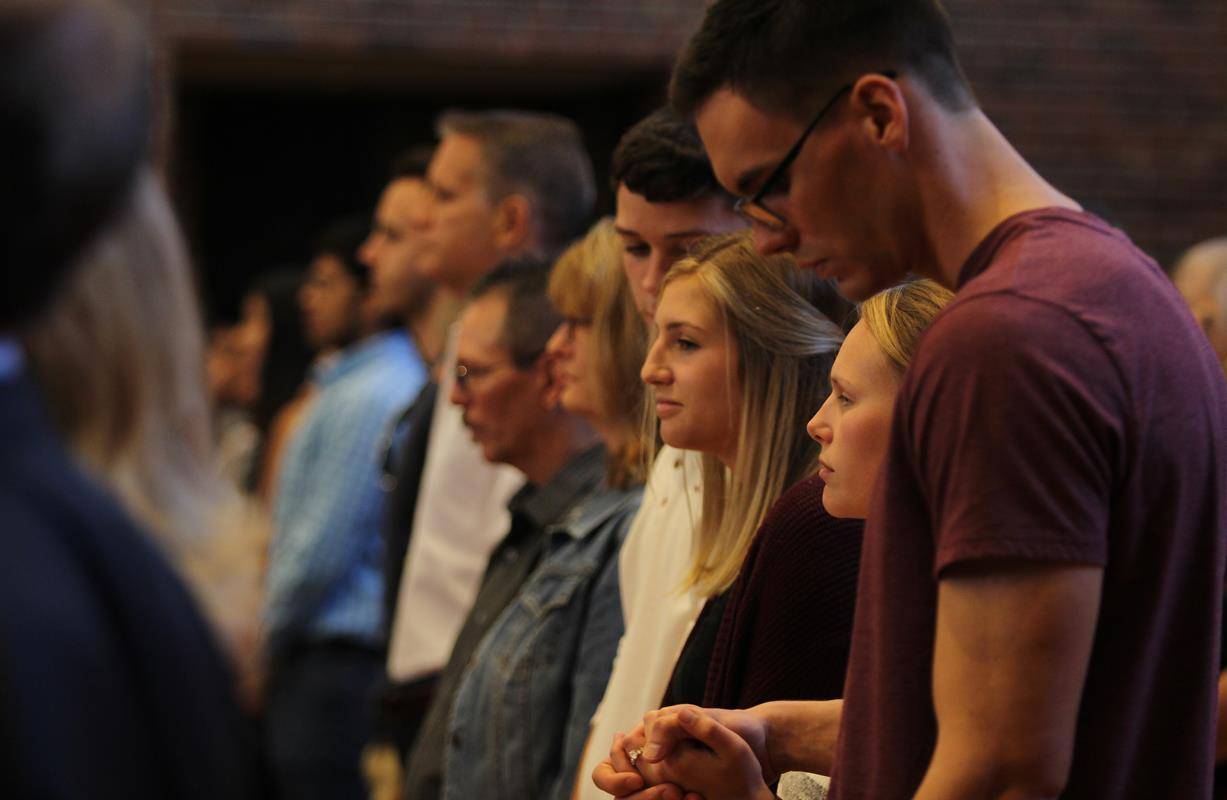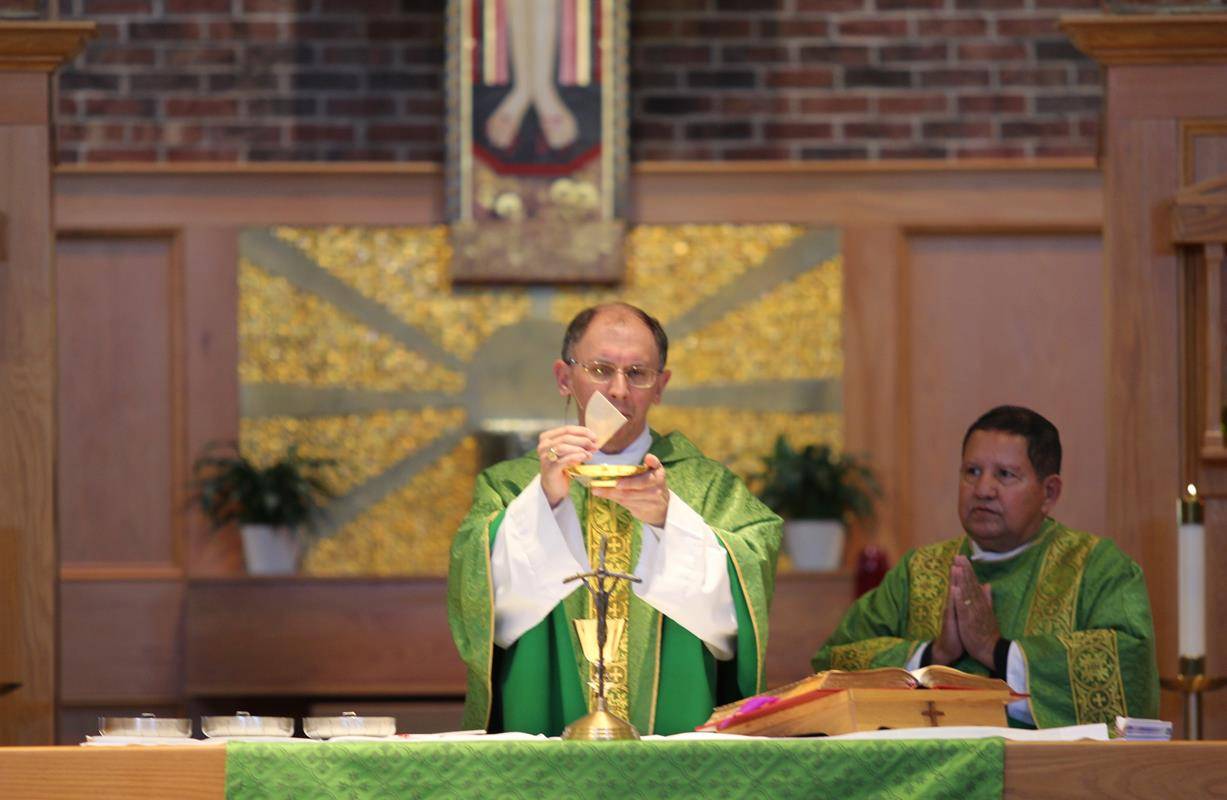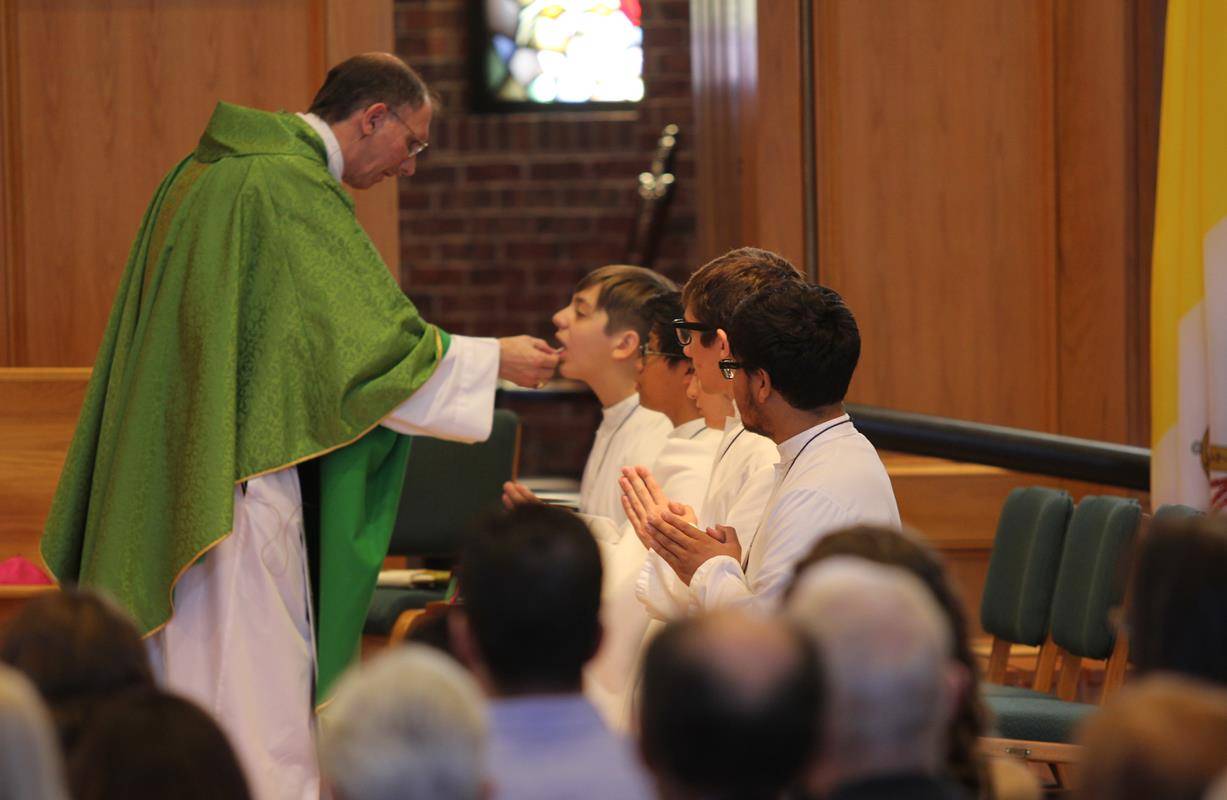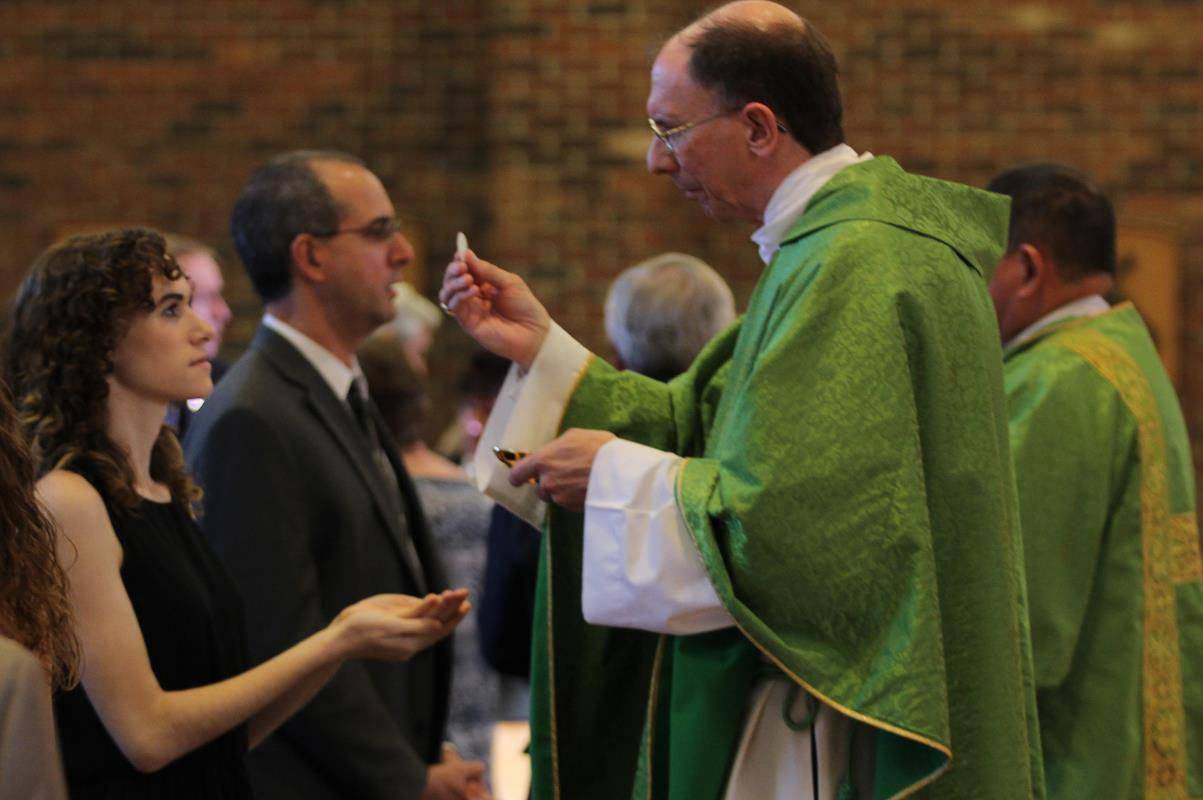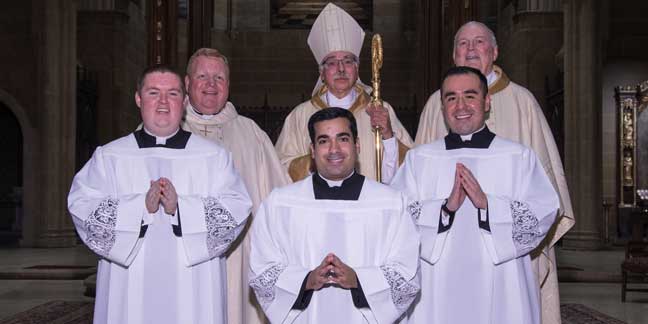 COLUMBUS, Ohio — Seminarians of the Diocese of Charlotte were among the 26 students of the Pontifical College Josephinum installed as lectors or acolytes during a Mass on Nov. 1, the Solemnity of All Saints.
COLUMBUS, Ohio — Seminarians of the Diocese of Charlotte were among the 26 students of the Pontifical College Josephinum installed as lectors or acolytes during a Mass on Nov. 1, the Solemnity of All Saints.
Britt Taylor and Alfonso Gamez were installed as acolytes, and Jonathan Torres was installed as lector.
They are pictured with the Josephinum's Father John Allen, vice president for advancement, and Monsignor Christopher J. Schreck, rector/president; and Bishop Frederick F. Campbell of Columbus, who was the principal celebrant of the Mass at St. Joseph Cathedral in Columbus.
Seminarians installed as lectors typically are first-year theologians and are commissioned to proclaim the Word of God in the liturgical assembly and to catechize the faithful.
Acolytes, traditionally second-year theologians, are entrusted with the duties of attending to the altar, assisting the deacon and priest at Mass, and distributing Holy Communion as an extraordinary minister.
— Carolyn A. Dinovo, Director of Communications, Pontifical College Josephinum; photo by Ken Snow
 Marriage rooted in self-sacrifice, modeling God’s love
Marriage rooted in self-sacrifice, modeling God’s love
CHARLOTTE — Married couples celebrating special anniversaries this year were the invited guests of Bishop Peter Jugis Nov. 6 at St. John Neumann Church. The annual wedding anniversary Mass honors couples who have witnessed to the sanctity of the sacrament of marriage for 25 years or more. Sponsored by Catholic Charities Diocese of Charlotte, the event includes a reception with the bishop after Mass.
“I take this opportunity on this beautiful fall day to thank you for the witness that you give to your love for each other and also your love for the Lord,” Bishop Jugis said at the start of his homily.
Drawing from the special readings selected for the anniversary Mass – Genesis chapter 2, 1 Corinthians and the Gospel of John – Bishop Jugis reminded those present that everyone is made in the image of God.
“We bear the image of Almighty God within our soul. We know from the definition that St. John gives us in the New Testament that God is love. And if we are made in the image of God, then we are made in the image of that love, who is God. It is from Him that we learn the true nature of love.”
He pointed out that contemporary society presents many different definitions, ideas and notions of what constitutes love. But the One who is love, God Himself, teaches us the true nature and meaning of love.
“Love is faithful. Love is true. Love is holy, because God is holy,” Bishop Jugis said. “God shows us that love is not self-seeking or closed and inward looking, but love always moves beyond itself into self-giving. It cannot stay locked up or closed within itself. It is always moving outward.”
He drew from the example of the Holy Trinity, pointing out that the love for the Father is always moving outward to the Son. The love of the Son is always moving outward to the Father. That love, that bond between them, is the Holy Spirit.
“God is love, and that love is what we are called to imitate and reflect here on this earth. That self-giving love is always moving out of itself to care and concern of the beloved. Love is there, as God teaches us, even if it entails suffering or sacrifice. That is the love God models and presents for us. It is the love Jesus has shown us. This is the love which makes marriage work,” he emphasized.
Deacon Bill and Lillian Griffin of St. Matthew Church in south Charlotte, who have been married 50 years, were among the couples at the Mass. They said they have come to know the true nature of love after a half-century of matrimony and raising three children, one with special needs.
“I think one of the secrets (of a successful marriage) is that God has always been part of our lives,” Deacon Griffin said. “Any time that we had a problem, it brought us closer together.”
“We’ve been like one, rather than two, people. We have become one. I think you need a sense of humor because there are a lot of ups and downs. You just have to go with the flow,” Lillian Griffin added.
Ray and Helen Maxon of St. Vincent de Paul Church, also married 50 years, said one of the secrets of a happy marriage is “don’t go to bed mad.” They advise young couples to “keep close to the Church.”
“Our faith has always been very strong,” Ray Maxon said. He and Helen traveled to other countries over the years and lived in France for four years.
“I always said we have got to get to church, no matter where we were,” Helen Maxon said. They were comforted that no matter what country they were in, there were Masses celebrated and they could understand what was going on in the Mass thanks to the Latin used in the liturgy.
Daniel and Danica Le of Sacred Heart Church in Salisbury are celebrating 25 years of marriage. When asked what their secret is, they replied, “Trusting, honoring (one another) and being faithful.”
Bishop Jugis asked all of the couples present at Mass, “How is it that you are able to arrive at this milestone in your marriage?”
“Isn’t it because you have placed the Lord first in your marriage? That His grace and His love have been the foundation of your married life? Isn’t it because it is a sacrament that you are living and the sacrament entails the presence of Almighty God and His life-giving love and His life-giving grace?”
He reminded them that this sacramental grace is always available to them – not just on the day they were married, but a living sacrament that flows from the Heart of Jesus into their lives and their marriages.
“May this anniversary Mass help you to turn to God in thanksgiving for all the blessings He has bestowed upon you,” he prayed.
— SueAnn Howell, senior reporter


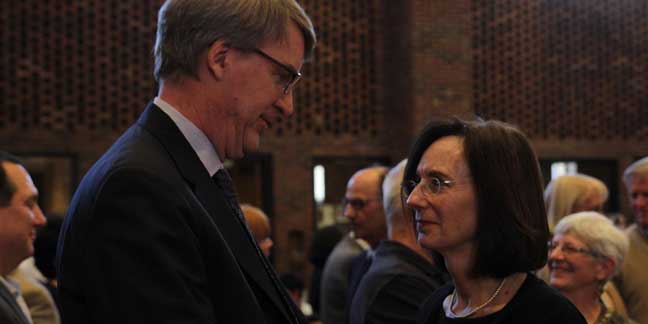 Marriage rooted in self-sacrifice, modeling God’s love
Marriage rooted in self-sacrifice, modeling God’s love